This article was medically reviewed by Luba Lee, FNP-BC, MS. Luba Lee, FNP-BC is a Board-Certified Family Nurse Practitioner (FNP) and educator in Tennessee with over a decade of clinical experience. Luba has certifications in Pediatric Advanced Life Support (PALS), Emergency Medicine, Advanced Cardiac Life Support (ACLS), Team Building, and Critical Care Nursing. She received her Master of Science in Nursing (MSN) from the University of Tennessee in 2006.
There are 7 references cited in this article, which can be found at the bottom of the page.
This article has been viewed 241,481 times.
A regular medication schedule makes your medication much more effective, and eliminates risks that comes with double dosing or skipped doses. Find a reminder that works for you, and stick to it. Stay with a system long enough to form a habit, and you'll find yourself forgetting much less often.
Steps
Understanding Your Medication
-
1Talk to your doctor about how to take your medication. In order to be more proactive about taking your medication, you need to understand what you're taking and why. Talk to your doctor when your meds are prescribed and make sure you understand the proper regimen for taking them.[1]
- Understand exactly what you're being treated for and how each medication affects your mind and body. Do not passively accept the prescription slip. Ask your doctor what the medication does.
- Talk to your doctor about side effects. You should always know what side effects to watch for and when and if you should discontinue use.
- Ask about special instructions, like whether you need to take the medication with food or lots of water, or if you should take it once a day or multiple times.
- Use one pharmacy for all medications so the pharmacist can check for interactions with new prescriptions.
-
2Understand what to do if you miss a dose. Despite your best efforts, you will likely miss a dose of your medication at some point. This happens to even to the most vigilant and there is different protocol for different types of meds. Sometimes, you should double the dose the next day. Other times, you should simply continue with regular doses and watch for side effects. Make sure you know what to do in the event you miss a dose of medication.[2]Advertisement
-
3Know how to safely store your medication. Medications need to be stored in different ways. Oftentimes, the medication bottle will have instructions for storage. Talk to your doctor about storing your meds if you have any questions.[3]
- You may be tempted to keep your medication on hand, in your purse or wallet, but make sure this is safe first. Sometimes, medication needs to be kept at room temperature and is less effective if exposed to intense heat or cold.
- Your medication might also need to be refrigerated or kept in a cool room of the house. Make sure you know the right temperature for storing it.
Setting Physical Reminders
-
1Use a pillbox. A pillbox is a storage device sold at most drug and department stores. It can be a great tool to keep track of what medication you need and when.
- Pillboxes have separate compartments for each day of the week. At the beginning of each week, put the correct dosage for each day into that compartment.[4]
- A pillbox is particularly great if you need to manage multiple medications, each with its own schedule.
-
2Place reminders in a visible place. Leave reminders throughout the house in places where you know you'll look often.[5]
- Jot down when to take your meds on a large calendar and hang it somewhere you'll see it often. You can even jot down any side effects on the calendar to track them.
- You can also write down reminders on sticky notes. Leave them places where you'll notice them, like near the coffee pot, in the bathroom mirror, or on your front door.
- Small notes written on notepad paper or index cards are also a great tool. For instance, you might have a reminder on an index card propped up by your computer.
-
3Incorporate your medication into daily activities. You're more likely to remember your medication if it's part of an established routine. Adding taking your meds into an existing daily ritual can serve as a great reminder.[6]
- Try to take your medicine the same time each day and do so while you're doing other daily events. For example, take your medication before you brush your teeth.
- If you have medication that needs to be taken with food, always take it with breakfast or lunch.
- If you already have a daily self-care ritual, like drinking hot tea, walking around the block, or taking a relaxing bath, try taking your pills just before or after that ritual.[7]
-
4Have family members or friends remind you. Friends and family members care about your health as much as you do. Having a trusted friend or family member remind you each day to take your medication can be helpful.[8]
Using Technology
-
1Set electronic reminders. Technology can be used to your advantage in regards to remembering medication. Try setting reminders using your watch, clock, phone, or computer.[11]
- Try setting an alarm or a reminder on your phone to be alerted when it's time to take your meds.
- If you have an alarm clock, set it to go off each day at a certain time as a reminder to take your medication.
- Also, many digital watches are equipped with alarms that can buzz or ring at specific times throughout the day.
-
2Use electronic medicine schedules online. There are many electronic medicine schedules that can be set up using the internet. The internet in general can provide a lot of helpful tools in regards to medication.[12]
- Sign up for daily emails or other reminders to be sent through an online schedule.
- There are even websites where you can create an automated medication schedule. Just enter your medications, how often you need to take them, and the dosage.
- You can also join forums or groups on Facebook, Twitter, and other social media sites where you can get tips for remembering your medication.
-
3Sign up for a text, call, or e-mail reminder service. You can find many sites online that allow you to enter your phone number or email address alongside information about your medication schedule. They use this information to send texts, phone calls, or emails reminding you to take your pills. Some fees may apply, depending on the service. Check with your healthcare provider. Some hospitals provide reminders, free of charge, for their patients.
Warnings
- If you do forget to take a dose, read the instructions that come with your medication carefully. Depending on the medicine and timing, you should either take your dose late or wait until the next scheduled dose. If you are not sure, ask the pharmacist to explain the dosage directions.⧼thumbs_response⧽
- Some medications have 'black box warnings'. This means that when taken incorrectly, or by those with certain conditions, fatalities may arise. Place these and other such medications in a safe location and call your doctor right away if you think you might have accidentally taken more than prescribed.⧼thumbs_response⧽
- Keep medication out of reach of children and pets.⧼thumbs_response⧽
- Medications classed as controlled substances should be kept in a locked container.⧼thumbs_response⧽
References
- ↑ https://www.fda.gov/drugs/special-features/why-you-need-take-your-medications-prescribed-or-instructed
- ↑ https://www.medsafe.govt.nz/profs/PUarticles/missed.htm
- ↑ https://medlineplus.gov/ency/patientinstructions/000534.htm
- ↑ https://healthblog.uofmhealth.org/wellness-prevention/8-easy-ways-to-remember-to-take-your-medication
- ↑ https://www.fda.gov/drugs/special-features/why-you-need-take-your-medications-prescribed-or-instructed
- ↑ https://medlineplus.gov/ency/patientinstructions/000613.htm
- ↑ http://psychcentral.com/blog/archives/2012/10/04/8-simple-ideas-for-remembering-to-take-your-medication/
- ↑ https://www.drugs.com/article/taking-your-medicine.html
- ↑ http://psychcentral.com/blog/archives/2012/10/04/8-simple-ideas-for-remembering-to-take-your-medication/
About This Article
If you need help remembering to take your medication, start using a pillbox with separate compartments for each day of the week. Since a pillbox is convenient to take around with you, you can easily check if you've taken all the pills you need to that day. You can also leave little reminders for yourself around the house in places you often look, such as a sticky note on your bathroom mirror. If you'd prefer to get an electronic reminder rather than using physical notes, set an alarm on your cellphone or computer. For more tips from our Medical co-author, including how to sign up for a medication reminder service, continue reading!
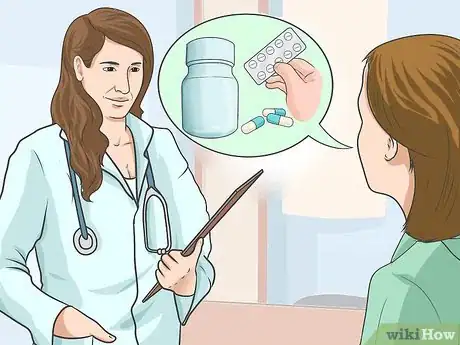
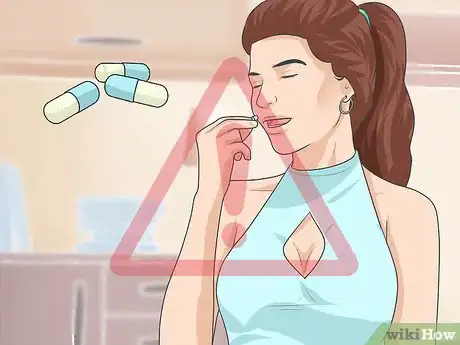
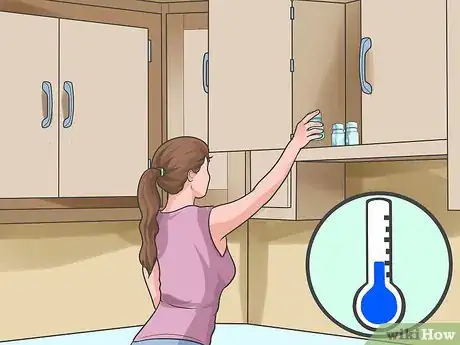
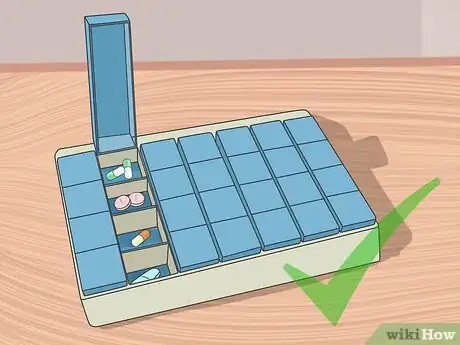
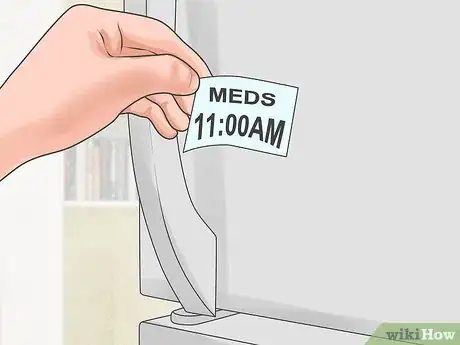

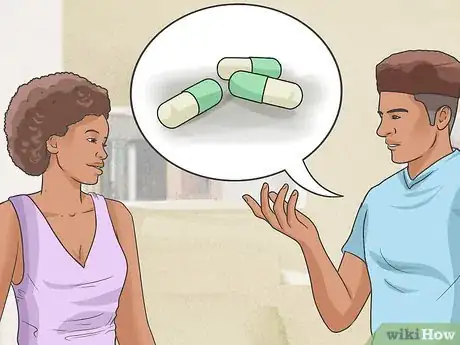
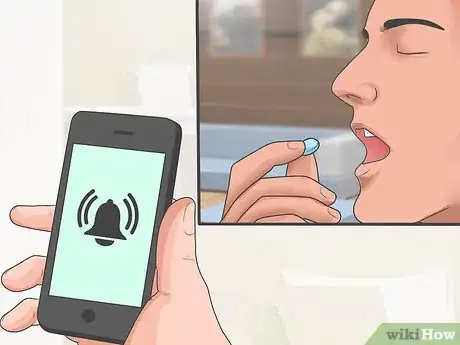


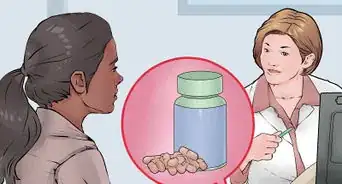


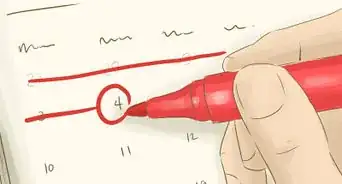
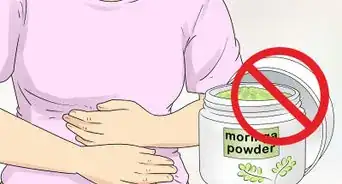

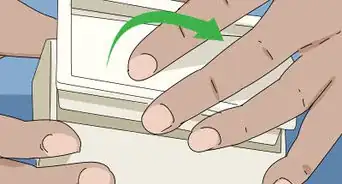













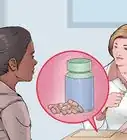


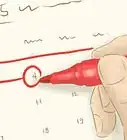



































Medical Disclaimer
The content of this article is not intended to be a substitute for professional medical advice, examination, diagnosis, or treatment. You should always contact your doctor or other qualified healthcare professional before starting, changing, or stopping any kind of health treatment.
Read More...